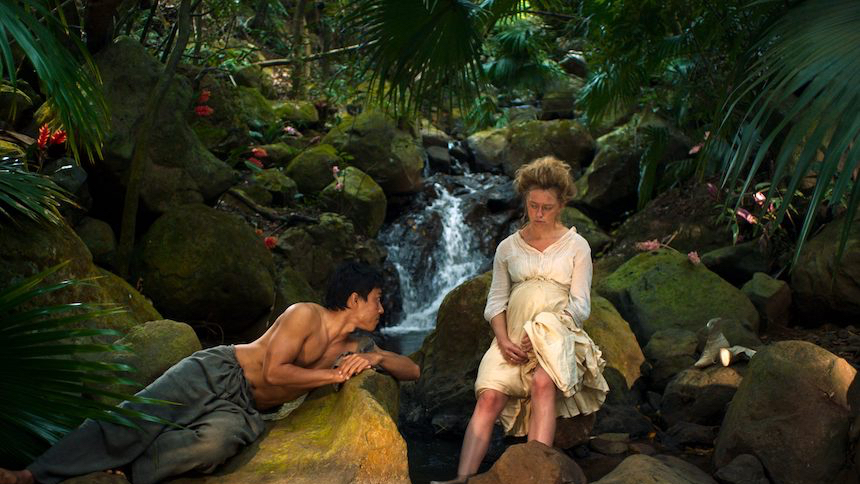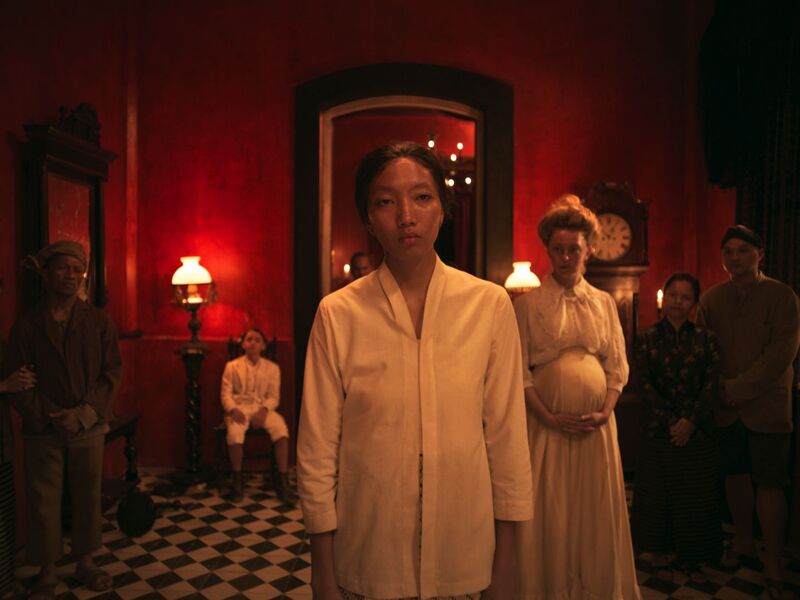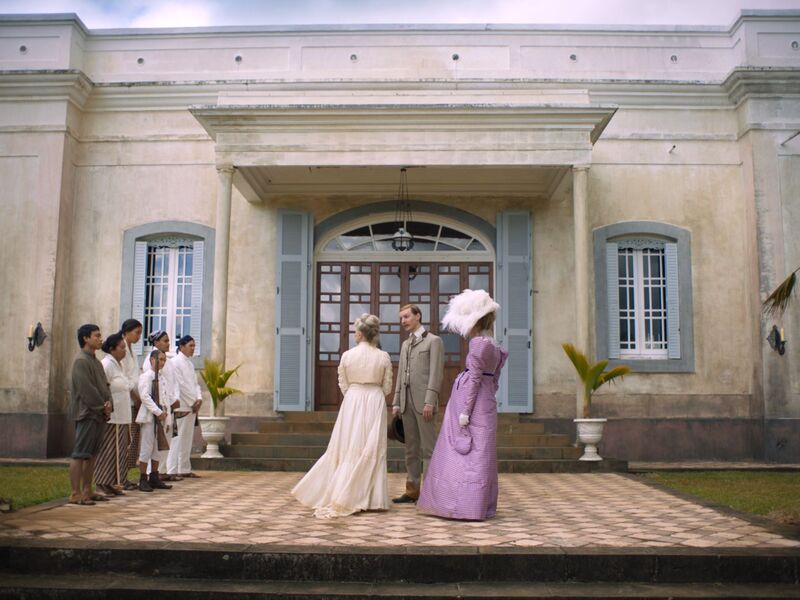Locarno 2023 Review: SWEET DREAMS, Subversive Satire at the End of Colonialism
Renée Soutendijk and Lisa Zweerman star in a surreal Dutch colonial satire, directed by Ena Sendijarević.

Bosnian-Dutch filmmaker Ena Sendijarević's new film, Sweet Dreams, is a thought-provoking exploration of the consequences of Dutch colonialism that adeptly blends historical circumstances with female-led absurdist satire.
Set in the Dutch East Indies circa 1900, Sendijarević scrutinizes the complexities of power dynamics within a Dutch-owned sugar plantation. This departure from the coming-of-age road movie style of her debut, Take Me Somewhere Nice, showcases her versatility as a director.
The film begins with the sudden death of plantation owner and patriarch Jan (Hans Dagelet), and the subsequent upheaval regarding the inheritance and a looming revolt by plantation workers. His wife, Agathe (played by Renée Soutendijk, a former muse of Paul Verhoeven, in a noteworthy performance), summons their estranged son Cornelis (Florian Myjer) and his pregnant wife Josefien (Lisa Zweerman) from Europe to assume control of the estate.
The atmosphere of rising worker discontent is further complicated when Jan's will names his live-in housemaid Siti (Hayati Azis) as the inheritor of the estate, through her son Karel (Hans Dagelet). Before the unforeseen death, Jan is depicted hunting with Karel, whom he treats as a father figure, and to whom the boy appears as the son Jan never had.
Upon the arrival of Cornelis and Josefien, it becomes evident that Cornelis does not embody the toxically assertive masculinity his father might have desired. Instead, Cornelis exemplifies an infantile timidity, and as a result, the narrative largely unfolds under the influence of the female characters. As the film progresses, the competing interests and lives of Dutch colonialists and natives intersect and clash, marking the close of one historical chapter with a resounding impact.
Sendijarević's distinctive stylistic approach imbues the film with an absurdist quality, establishing an atmosphere that borders on the surreal and amplifies the satirical elements of the story. Having refined her unique style of civil surrealism in her brightly-hued debut, the writer-director now carries this acerbic sensibility into the realm of period film, offering a perspective that, while unexpected, is all the more invigorating.
Sendijarević's approach to her second feature mirrors the distinctive styles favored by a new generation of intellectually inclined European filmmakers, like Julian Radlmaier or Daniel Hoesl. Sweet Dreams aligns more closely with the sensibilities Radlmaier showcased in Blodsuckers - A Marxist Vampire Comedy, although Sendijarević eschews meta-textual references.
On the other hand, Sendijarević amplifies the surrealism in the political subject matter, distancing the narrative from actual events while sharpening the commentary on colonialism and its effects through biting satire. The director's choice for this unconventional pairing enhances the viewing experience of Sweet Dreams, managing to captivate without alienating a more mainstream audience, even when the plot intensifies to a crescendo.
The film's lavish production design and striking visuals enhance its overall production value, aligning its aesthetics with the likes of Yorgos Lanthimos' The Favourite. Sendijarević's previous film, Take Me Somewhere Nice, displayed her deliberate approach to imagery, but Sweet Dreams elevates this technique to new heights.
Transitioning from an urban environment to a jungle backdrop and from a contemporary setting to the turn-of-the-century period, the framing and compositions of Sweet Dreams are more controlled and deliberate compared to Take Me Somewhere Nice. This is notable even though Sendijarević collaborated once again with cinematographer Emo Weemhoff and production designer Myrte Beltman, who both worked on her debut.
Sendijarević's debut in world cinema signaled the emergence of a promising young talent. Her sophomore feature reaffirms her prowess and vitality, presenting a thought-provoking and mature addition to her filmography, all the while maintaining her distinct vision and approach.
The film recently screened at the Locarno Film Festival.









